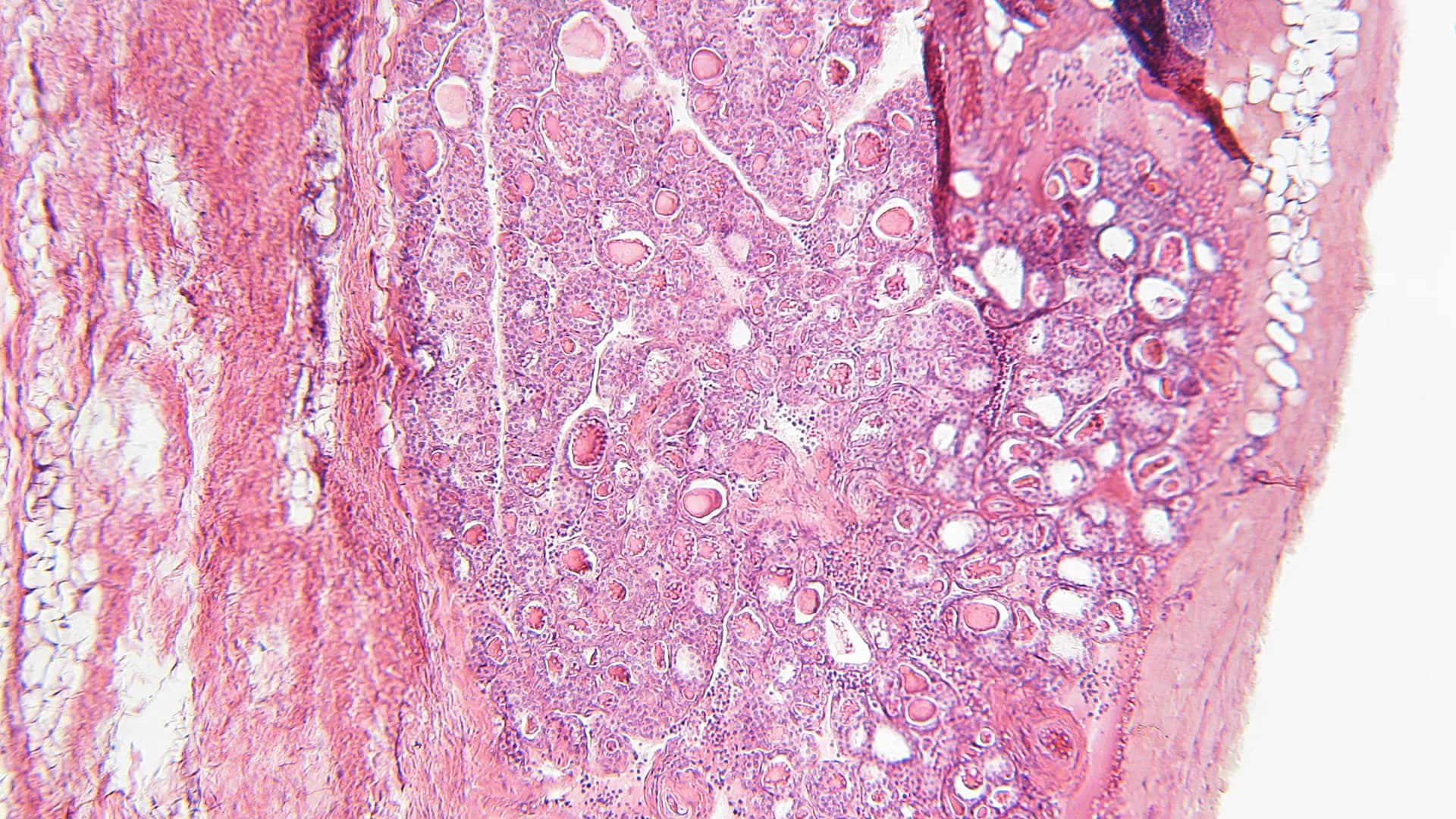It is well established that several natural compounds, micronutrients, and trace elements contained in our diet can influence thyroid function. These can be potentially useful, or even harmful, depending on the type of compound, its dose, and/or the pre-existing thyroid status. It is well-known how that there is a U-shaped relationship between Iodine intake and thyroid function, being too scarce but also excessive amounts of Iodine intake harmful to thyroid function. However, it is less well-known that such a relationship is also valid for other compounds. For example, although Selenium is essential to thyroid function, it has also been demonstrated that its excessive supplementation may enhance the effects of Iodine deficit in endemic regions. New synthetic chemical compounds entering the food chain through industrial human activities, or present in the plastic containers where food is stored, have recently received a considerable amount of attention. Concerns include their accumulation and/or persistence in our body and external environments, their ability to cross the placental barrier, and the cocktail effect. It has been demonstrated that these compounds can act as “endocrine disruptors” influencing thyroid homeostasis, because of their similarity with the thyroid hormone structure, thus interfering with thyroid hormone link to plasmatic proteins or to thyroid hormone receptors, or with thyroid hormone catabolism. There has been growing concern about the harmful effects of these in adults, children, pregnant women, and possibly their offspring. But also many foods have been reported to interfere with thyroid function: in vivo studies on thyroid functions have raised some concerns about perturbation effects of soy in people with clinical or subclinical thyroid disease, while the antithyroid properties of foods rich in thiocyanate and thiocyanate-like compounds are well-known.
This Research Topic aims to provide an updated view on how diet, through micronutrients, diet supplements, food, and endocrine disruptors can interfere thyroid function and to investigate to what extent their effect is harmful to thyroid physiology. We welcome papers outlining the role of known dietary compounds essential for thyroid function as Iodine and Selenium, but also manuscripts exploring the effects on thyroid health associated with other diet supplements (with less-established effects on thyroid function) and environmental “endocrine disruptors” (such as Nitrates, Phthalate, Perfluoroalkyl substances) and their possible involvement mechanisms.
We welcome manuscripts (research articles, mini-review articles, and case reports) covering, but not limited to, the following areas (also manuscripts exploring other possible connections between diet and thyroid but not falling into the following categories will be considered):
- Thyroid and Iodine;
- Thyroid and Selenium;
- Thyroid and diet supplements;
- Thyroid and minerals (Iron, Zinc etc);
- Thyroid and endocrine disruptors;
- Thyroid and micronutrients;
- Thyroid and soy;
- Thyroid and goitrogenic foods.
It is well established that several natural compounds, micronutrients, and trace elements contained in our diet can influence thyroid function. These can be potentially useful, or even harmful, depending on the type of compound, its dose, and/or the pre-existing thyroid status. It is well-known how that there is a U-shaped relationship between Iodine intake and thyroid function, being too scarce but also excessive amounts of Iodine intake harmful to thyroid function. However, it is less well-known that such a relationship is also valid for other compounds. For example, although Selenium is essential to thyroid function, it has also been demonstrated that its excessive supplementation may enhance the effects of Iodine deficit in endemic regions. New synthetic chemical compounds entering the food chain through industrial human activities, or present in the plastic containers where food is stored, have recently received a considerable amount of attention. Concerns include their accumulation and/or persistence in our body and external environments, their ability to cross the placental barrier, and the cocktail effect. It has been demonstrated that these compounds can act as “endocrine disruptors” influencing thyroid homeostasis, because of their similarity with the thyroid hormone structure, thus interfering with thyroid hormone link to plasmatic proteins or to thyroid hormone receptors, or with thyroid hormone catabolism. There has been growing concern about the harmful effects of these in adults, children, pregnant women, and possibly their offspring. But also many foods have been reported to interfere with thyroid function: in vivo studies on thyroid functions have raised some concerns about perturbation effects of soy in people with clinical or subclinical thyroid disease, while the antithyroid properties of foods rich in thiocyanate and thiocyanate-like compounds are well-known.
This Research Topic aims to provide an updated view on how diet, through micronutrients, diet supplements, food, and endocrine disruptors can interfere thyroid function and to investigate to what extent their effect is harmful to thyroid physiology. We welcome papers outlining the role of known dietary compounds essential for thyroid function as Iodine and Selenium, but also manuscripts exploring the effects on thyroid health associated with other diet supplements (with less-established effects on thyroid function) and environmental “endocrine disruptors” (such as Nitrates, Phthalate, Perfluoroalkyl substances) and their possible involvement mechanisms.
We welcome manuscripts (research articles, mini-review articles, and case reports) covering, but not limited to, the following areas (also manuscripts exploring other possible connections between diet and thyroid but not falling into the following categories will be considered):
- Thyroid and Iodine;
- Thyroid and Selenium;
- Thyroid and diet supplements;
- Thyroid and minerals (Iron, Zinc etc);
- Thyroid and endocrine disruptors;
- Thyroid and micronutrients;
- Thyroid and soy;
- Thyroid and goitrogenic foods.










